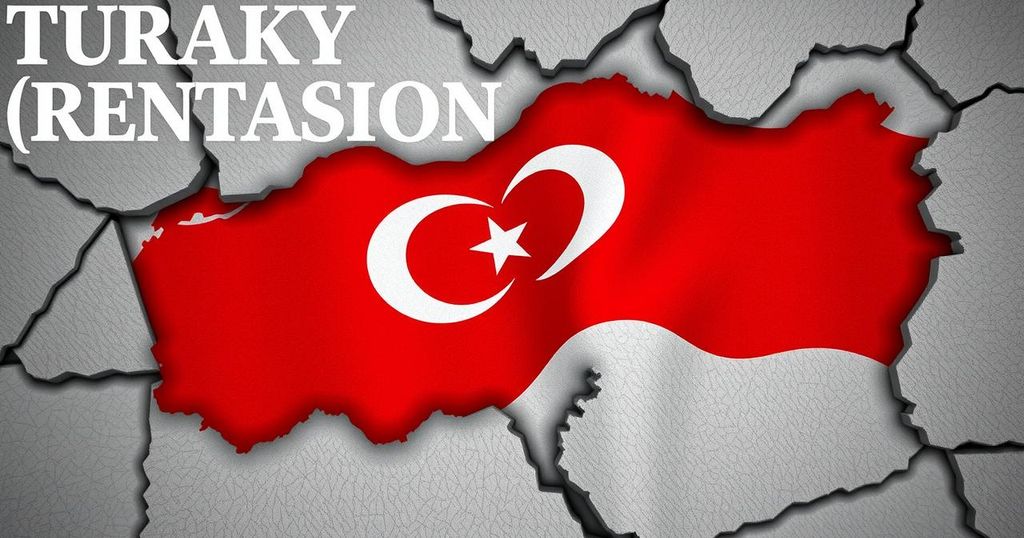The Strategic Consequences of Bashar al-Assad’s Fall for Turkey

The ousting of Bashar al-Assad has created opportunities for Turkey to enhance its regional influence while presenting challenges for President Erdogan. Key considerations include the management of Kurdish threats, the return of Syrian refugees, and Turkey’s evolving role in a shifting Syria, particularly regarding its relations with Russia and the new Syrian government leadership.
The recent ouster of Bashar al-Assad in Syria signifies a turning point that may bolster Turkey’s influence in the region. However, it also poses significant challenges for Turkish President Recep Tayyip Erdogan, particularly as he aims to address the complexities of Kurdish territorial control and manage the burden of hosting millions of Syrian refugees. Erdogan’s offer to Assad for collaboration was rebuffed, leading to a rapid offensive by rebel forces like Hayat Tahrir al-Sham (HTS), with Turkish support playing a crucial role. The Turkish-backed Syrian National Army (SNA) collaborated closely with HTS, orchestrating a well-planned advance that saw the capture of key territories.
Erdogan’s overarching aim remains the establishment of a secure buffer zone along the Turkish-Syrian border to prevent Kurdish influences that Ankara associates with terrorism. Turkey has already begun to exert control over regions in northern Syria and has taken strategic steps towards reclaiming territories like Manbij from U.S.-backed Kurdish forces. The outcome of the shifting power dynamics in Syria will depend on the future stance of the new Damascus government and its approach towards both the Kurdish population and Turkish interests.
Furthermore, the ongoing presence of over 3 million Syrian refugees in Turkey is a pressing concern for Erdogan. While many refugees express a desire to return home, fears for their safety and stability in Syria may hinder this process. Erdogan is likely to promote return initiatives, balancing domestic pressures with humanitarian considerations.
In the context of Turkey’s interactions with Russia, past attempts at rebuilding relations with Assad have been complicated by Assad’s refusal to heed Russian counsel. As Turkey positions itself as a key player post-Assad, the future of Russian military presence in Syria remains precarious.
In summary, Turkey emerges as a significant actor in the wake of Assad’s fall, influencing Kurdish dynamics while instigating a strategic reshaping of northern Syria. Nonetheless, the long-term implications for both Syrian governance and Turkey’s regional role remain uncertain, hinging on forthcoming developments and political negotiations in the region.
The Syrian civil war, which began in 2011, has resulted in complex geopolitical ramifications, particularly concerning Turkey’s role and interests. President Erdogan has long viewed the Kurdish People’s Protection Units (YPG) as a direct threat, associating them with the Kurdistan Workers’ Party (PKK), deemed a terrorist organization by Turkey and its allies. As the conflict has evolved, the emergence of various rebel factions, including HTS, has further complicated the landscape, with Turkey directly supporting certain groups to counterbalance Kurdish influence. The recent developments leading to Assad’s ouster mark a pivotal moment for Turkey, highlighting both opportunities and challenges amid uncertainty in the region.
In conclusion, the fall of Bashar al-Assad marks a significant shift in the Syrian conflict, with Turkey poised to capitalize on this transition. President Erdogan’s strategic maneuvers aim to mitigate Kurdish threats while navigating the complexities of refugee management and international relations, particularly concerning Russia. As Turkey seeks to expand its influence, the next steps will largely depend on the actions of the new Syrian leadership and its willingness to engage in dialogue with various factions. The evolving situation necessitates a cautious examination of Turkey’s long-term objectives and the potential ramifications for both Syrian and regional stability.
Original Source: www.france24.com







